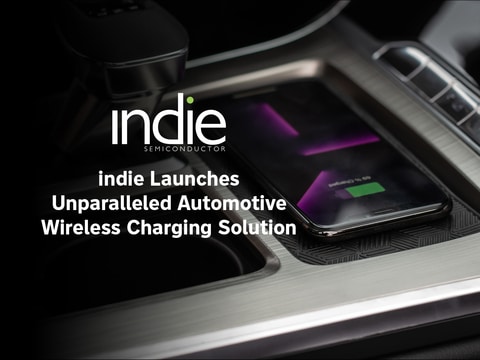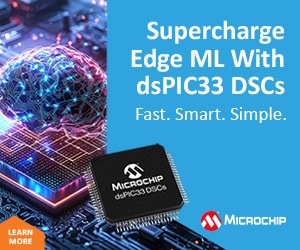The wireless power charging SoC enables in-cabin device charging compliant with WPC Qi 1.3 standard, reduces external components for simpler implementation, smaller footprint, and lower costs.

Indie Semiconductor, an autotech solutions innovator, has launched a state-of-the-art integrated automotive wireless power charging system-on-chip (SoC) that offers unparalleled integration within the industry. The company claims the iND87200 SoC simplifies and expedites the development of cost-effective in-cabin portable device charging designs based on the Wireless Power Charging (WPC) ‘Qi’ standard. The system supports the emerging Qi 2.0 standard, enhancing charging reliability while moving. According to the company’s press release, the SoC offers faster and more reliable charging by automatically aligning smartphones with an inductive charging coil and maintaining their position regardless of vehicle motion.
The SoC features a dual-core design, combining an Arm Cortex-M4 with Floating-Point Unit (Cortex-M4F) processor with 2MB of embedded Flash and 256kB of Static Random-Access Memory (SRAM), along with a dedicated Arm Cortex M0 processor for the WPC stack. This architecture allows for the separation of compute resources, enabling the execution of user-specific software without being constrained by timing and interrupt considerations related to the WPC stack. The company claims that the wireless charging solution integrates all the essential components, including power management, DC-DC converter, signal conditioning, WPC inverter drivers, power FETs, LED drivers, and fan drivers. It supports various serial interfaces such as Controller Area Network (CAN) 2.0B, Local Interconnect Network (LIN), Inter-Integrated Circuit (I2C), and Universal Asynchronous Receiver-Transmitters (UARTs), offering multiple connectivity options for the vehicle and other peripherals.
“indie’s breakthrough automotive wireless charging solution speeds device charging times and delivers industry’s leading levels of semiconductor and software integration, reducing the external bill-of-materials by almost half relative to existing discrete implementations,” said Fred Jarrar, vice president and general manager of indie Semiconductor’s Power and USB product lines. “This turn-key architecture dramatically reduces system complexity, improves overall reliability and de-risks tier 1 time to market. As a result, indie’s latest SoC will play a pivotal role in enabling automotive OEMs to deliver faster, cost-effective and more reliable portable device charging, contributing to an engaging in-cabin user experience spanning feature-rich cars to entry-level vehicles.”
For more information, click here.







